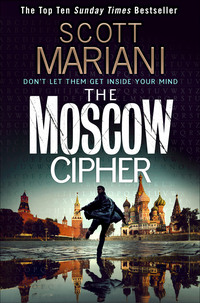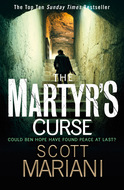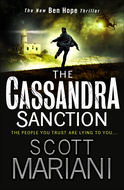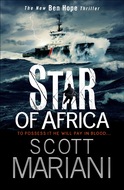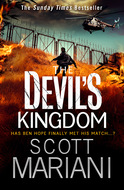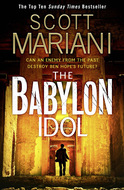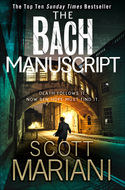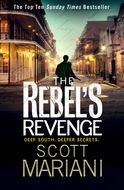Kitap dosya olarak indirilemez ancak uygulamamız üzerinden veya online olarak web sitemizden okunabilir.
Kitabı oku: «The Moscow Cipher», sayfa 2
He and Grisha now communicated daily on prepaid phones bought for cash and theoretically untraceable to them. On Grisha’s advice, as an extra precaution Yuri followed his friend’s practice of replacing his ‘burner’ every couple of weeks. As a means of living as much off the grid as possible in an urban environment, he also moved to a dingy hole of an apartment that he paid for in cash, utility bills all in the name of a former tenant.
He and Grisha started meeting in person. The first reunion took place at a bar in a small town eighty kilometres from Moscow. Later, as a sign of his growing trust, Grisha let Yuri in on the secret of his farm’s location, way out in the remote countryside. Never had Yuri mentioned his past as a spook for Russian intelligence. That was history now, anyway.
Over the next couple of years, Yuri visited the farm often. The two friends would spend days and nights in Grisha’s chaotic home drinking vodka and talking conspiracies. It was more than a hobby or belief system for Grisha, it was a total lifestyle. Yuri felt the infectious lure of that world. He was becoming seriously addicted.
‘It’s all building to a head, don’t you see?’ Grisha had kept insisting during their most recent late-night session. ‘It’s coming. Just you wait. Something’s going to happen that’ll prove everything we’ve been saying. Something that’ll show the world what these bastards have really been up to all along. Nobody will be laughing at us then.’
‘“Something”?’
‘Something huge, my man.’
Yuri believed it too, even if neither of them knew what that ‘something’ could be.
Then, one sunny day in June two years after he’d left Amsterdam, Grisha’s prediction came terrifyingly true, in a way neither of them could have imagined.
Chapter 2
For a dedicated conspiracy buff tainted by more than a whiff of paranoia, nothing could be more alarming than happening to be walking down the street minding your own business when a mysterious black car full of mysterious men suddenly appears from nowhere and pulls up beside you.
That was exactly what happened to Yuri Petrov one day that summer as he strolled aimlessly about the streets of Moscow. He instantly knew the black Mercedes was an Intelligence Services car. Gripped by panic, he was ready to bolt as the back doors opened and two men, very obviously government agents, climbed out and walked calmly towards him.
He’d never seen either of them before. But they seemed to recognise him, even with the hair and the beard. Yuri hadn’t been paying so much attention to personal neatness of late.
‘Hello, Yuri,’ one of them said.
The other motioned towards the car’s open door. ‘Let’s go for a drive, shall we?’
Powerless to refuse, Yuri climbed into the back seat. The two men sat flanking him as the Mercedes sped off. ‘What’s this about?’ he kept repeating. ‘Who are you people? What do you want with me?’
‘You’ll find out soon enough. Shut up and enjoy the ride.’
Twenty minutes later, the Mercedes arrived at a lugubrious government building Yuri had never visited before. They passed through two armed security checkpoints, then whooshed down a ramp into a subterranean car park from where Yuri’s escorts ushered him up several floors in a lift. They stepped out into a corridor that was devoid of any windows or furniture and painted institutional grey. Yuri was so nervous he could hardly control the shaking in his knees as they led him up the corridor. After two years of the Grisha Solokov academy, it seemed to Yuri like the dystopian nightmare coming true.
Yuri had no idea of what he was about to step into.
The agents stopped outside an unmarked door. ‘Go in,’ one said to Yuri.
Yuri did as he was told. He found himself in an office, not a cosy one. The walls and steel filing cabinets and ancient iron radiators and exposed pipes were all painted the same grey as the corridor. There was no carpet and only one window, through whose dusty glass little sunlight was able to penetrate. In front of the window was a large, plain desk, which was completely bare except for a telephone and a slim cardboard folder that lay closed on the desktop.
Behind the desk sat a man whom Yuri, unlike the men who had brought him here, did in fact recognise. It was his former chief, the man who had first interviewed and employed him in the service, Antonin Bezukhov.
The chief was a large, heavyset figure in a dark suit. His white hair was buzzed military-short and his face appeared to have been chiselled from a lump of granite. He had to be in his mid-seventies, but if anything he looked more severe and intimidating than Yuri remembered, which was saying something. This was a man rumoured to have personally executed several CIA operatives, back in the glory days of the Cold War. As far as Bezukhov was concerned, the old regime had never ended.
Bezukhov invited him to sit, and offered him a ghost of a smile. ‘You’re a hard man to find, Yuri. We obviously trained you too well. Where’ve you been hiding yourself these days?’
Yuri swallowed. ‘Why am I here? What do you want from me?’
‘We need you to come back and work for us, one more time,’ said Bezukhov.
‘But I’m retired,’ Yuri protested. ‘Out, gone, done with the whole thing. I don’t want anything more to do with any of it.’
‘Consider this your heroic comeback,’ the chief said, faintly amused. ‘Come on, Yuri, don’t you know that once you’re in the club, we’d never really let you go? That’s how the game is played, my friend. And now we have another job for you.’
Yuri could find nothing to say. Bezukhov reached a thick arm across the desk, and a brawny paw of a hand slid the solitary card folder over its surface towards Yuri. ‘Open it.’
Again, Yuri did as he was told. Inside the card folder was a transparent plastic sleeve, and inside that a single oblong slip of paper. It was heavily aged, as if it had spent many years exposed to the elements. And creased, as though it had been folded up very small throughout that time. Long ago, someone had written four lines of text on the paper, using black ink that had faded somewhat but was still clearly legible. The writing wasn’t in Russian. It used the letters of the English alphabet, though the language wasn’t English either.
‘It’s a cipher,’ Yuri said. An old one, too, dating back a good few decades. Seeing it, he couldn’t pretend not to feel a slight stirring of curiosity.
‘Good to see you haven’t lost your powers of observation, Agent Petrov.’
‘Please don’t call me that.’
‘This cipher is the reason I called you in,’ the chief said. ‘You’re going to decode it for us. Just like old times.’
Yuri studied the cipher more closely. Right away, he could tell it was like no other code he’d come across before. Even back in the pre-cybertechnology dark ages, cryptology had reached a level that was far from crude. ‘It’s not going to be easy.’
‘Why do you think we selected you for the task?’ the chief said. ‘Some people haven’t forgotten you used to have a way with these things, back in the old days before these fucking computers took over.’ He spat out the expletive with surprising bitterness.
As Yuri went on peering at the encrypted text, the chief recomposed himself and explained, ‘The cipher was discovered two weeks ago by a crew of workmen who were demolishing a block of old post-war houses in Novogireyevo District. Coming across an envelope that had been crammed into a crack in a wall, they opened it, saw it was something peculiar and handed it in to the police. Thank God for patriotism, heh?’
Yuri asked, ‘What was it doing there?’
Bezukhov smiled, aware that Yuri was being drawn in despite himself. ‘We believe that it was concealed there in February 1957 by a British spy working as part of a network. His cover ID was Pyotr Kozlov, real name Leonard Ingram, a British Army captain recruited to SIS after the war. He and a couple of others were inserted into the Soviet Union that January, as part of a special operation you don’t need to know about. Let’s just say they were stealing secrets. That was before the Anti-Fascist Protection Rampart was put up, and these shits could creep in and out almost as they pleased.’ This was all long, long before Yuri’s time, but he knew the chief was talking about the Berlin Wall.
Bezukhov levered himself from his chair and went to gaze out of the dusty window. With his back to Yuri he went on, ‘Of course, our boys were onto them the moment they stepped on Russian soil. And we had our suspicions about what they were up to. The cipher is obviously a set of instructions of some kind, which would indicate the nature of the secrets they stole, and their whereabouts. Ingram was on his way to pass those instructions to one of his fellow spies when the KGB jumped the gun and nabbed him too soon. If they’d allowed the meeting to take place, they could have captured both of them together as well as the information they were sharing.’ Bezukhov turned away from the window with a sigh. ‘Mistakes happen. Anyway, when he knew they were closing in on him, Ingram managed to hide what he was carrying, presumably intending to return there if by some miracle he escaped.’
‘But he didn’t.’
Bezukhov shook his head. ‘Before he knew it, he was carted off to Lubyanka for interrogation. Sadly for us, however, the clumsy fools who worked him over were a little overenthusiastic with their use of force. He expired before they were able to get much out of him.’
Yuri felt sick. He tried not to visualise the scene too vividly, but couldn’t shut off his imagination.
‘Before he died,’ the chief went on, ‘he revealed knowledge of some highly sensitive information. And I do mean highly,’ he repeated for emphasis. ‘We want to recover that information, and we believe the cipher is key to understanding how much he knew, who else might have been passed that information and how much damage might have been done to our security.’
‘So long ago,’ Yuri said, frowning. ‘How could it still be important?’
‘The biggest secrets are like plutonium,’ Bezukhov replied. ‘Their potency doesn’t fade over time.’
The chief let those words hang in the air for a moment, then yanked open a drawer of his desk. ‘As you probably know, the old KGB archives on dissidents and enemy spies detained during the Cold War were never destroyed after the fall of the Soviet regime. They were simply hustled away to a new location and now reside inside a high-security underground vault, one to which I happen to have access. I’ve examined the contents of Ingram’s file and found something that may be of value to us. Ingram was carrying these items the night he was captured.’
Bezukhov took a packet from the drawer and slid it across the desk towards Yuri. Yuri hesitated, looked inside, then glanced quizzically up at the chief.
‘Tuning forks,’ Bezukhov said. ‘Part of his cover. Never mind those. It’s the book I’m interested in.’
The paperback was an old mid-fifties edition of Lucky Jim by the English novelist Kingsley Amis, yellowed by decades spent in secret government storage.
‘Certain pages of the book appear to have been very well thumbed,’ Bezukhov said. ‘You know what that means.’
Yuri did indeed. Old-fashioned ciphers often made use of random phrases and passages from books, likewise chosen at random and known only to the codemaker and the codebreaker. Without the book, it could be literally impossible to decipher the encrypted message. Yuri shook his head. What a fool the British spy had been, to be caught with it. A basic error of tradecraft, one that had cost him dear. Needless to say, Russian agents didn’t make such mistakes.
‘Get to work,’ Bezukhov said. ‘I expect results, Agent Petrov, and I expect them soon. And for pity’s sake, get a shave and a haircut. You look like one of the beatniks we used to send to the Gulag.’
Chapter 3
Yuri returned to his dingy apartment, his nerves rattled by the idea that the intelligence services could just scoop him up and put him back to work like he was one of their mindless, unquestioning drones. But what choice had he, other than to do their bidding?
And if he was perfectly honest with himself, a tiny part of him was thrilled to be working on the cipher. For so long, he had lacked any sense of purpose. This was the stuff he did best, and he was determined to crack it. Not just to please Bezukhov, but to prove to himself that he still had what it took.
First impressions had been right: the cipher was indeed like nothing else he’d encountered before. It was like a modern-day locksmith suddenly faced with picking some antiquated and fiendishly complex device from ancient China or Egypt. Yuri carried it over to the cluttered work table in the corner of his tiny living room. With a cup of coffee at his right elbow, Ingram’s copy of Lucky Jim at his left and the cipher, notepad, pen and his trusty laptop in front of him, he got down to his task with an energy he’d forgotten he had. The laptop was loaded with a decryption program he’d designed himself, called CAESAR. But, just like in the good old days, technology would be no substitute for sheer brainwork. Man, not machine, would be doing most of the heavy lifting.
The thing was a modified Polybius square with straddling bipartite monoalphabetic substitution, superenciphered by double transposition. In short, it was a tough little bastard to crack. Without the yellowed, dog-eared old book, he’d have been lost. Somewhere within its pages was the key to whatever message the British spy had been trying to pass to his colleagues. He was damned if he couldn’t find it.
Yuri worked all night. And all of the next day. And all of the following night as well. He worked until he was exhausted, skipping meals, snoozing for short periods at the desk, reluctant to leave his chair even for toilet breaks. He worked until the whole room was littered with screwed-up sheets of paper covered in gobbledegook.
But he got it. Finally, as the first streaks of dawn were breaking on the third day, with just a little help from CAESAR, he got it.
When the computer finally spat out the finished decryption, Yuri fell back in his chair and stared at the screen for a long time. The decoded message was short. The bottom lines were a set of geo coordinates. The top line consisted of just five words, in English. OPERATION PUPPET MASTER IS REAL.
Those five words couldn’t have hit Yuri harder if they had been bullets fired from a high-powered rifle.
‘Operation Puppet Master’ was the translation of the Russian ‘Oперaция кукольныи мaстер’, and one of the great mythical beasts in the pantheon of conspiracy theory dating back to Cold War times. On internet forums and all across the blogosphere, debate still raged among paranoid nutjobs and serious investigators alike over whether the highly classified Soviet project had ever been more than a wild fantasy. He and Grisha had talked about it often. While Grisha was an avid believer, of course, Yuri had been privately sceptical: file under ‘Giant Alien Lizards’.
Suddenly that scepticism had been blown to smithereens. ‘You’ve got to be fucking kidding me,’ he breathed.
The bastards had actually been developing this stuff all along? It was real?
Not only real, but worrying enough, apparently, to have drawn the attention of SIS, the British Intelligence Service, precursor to MI6, so long ago. Enough of a threat for the likes of Captain Leonard Ingram to risk and lose his life over. Things didn’t get more real than that.
Yuri fed the geo coordinates into Google and discovered that they pointed to a location right here, in Moscow. It was obvious what he had to do next.
Yuri’s car was an ancient Volkswagen that wheezed and rattled and grew lighter each year as more parts dropped off. Traffic was mercifully sparse at that time of morning, and the banger was able to reach its destination without expiring. The area was in the east of the city, part of the Novogireyevo district where the KGB had apprehended the British spy back in ’57. The coordinates led Yuri to a fenced-off row of old Soviet-era warehouses that must have been disused even then, now decades overdue for demolition.
Ingram’s decoded directions were amazingly precise. Behind a stack of rusty, jagged metal and empty crates, Yuri came across the tobacco tin exactly where the spy had left it all those years ago. He hustled back to his car to open it. The round pocket-sized tin was red with rust on the outside, but when he used a coin to pop the lid he found the airtight seal still intact, opening with a little hiss of stale air trapped in there since 1957.
Inside the tin was a roll of microfilm, then the summit of technology, nowadays easily scanned and read on a home computer. The other item left Yuri breathless. He peeled away the square of oiled cloth in which it had been wrapped, and let the thing roll into the cupped palm of his hand, careful not to drop it. It was only a few millimetres in length, oblong-shaped and rounded at both ends like a medicine capsule, but made of shiny metal that was smooth and cold to the touch. If it was what Yuri thought it was, it was beyond sensational. Its discovery could change everything. Never mind myths and speculation: here, for the first time, was the hard physical evidence that could blow the lid right off the whole conspiracy.
No wonder Bezukhov and his people didn’t want this coming out. Like plutonium, the chief had said. The secret was as explosive now as it had been sixty years ago. Maybe even more so. What were these bastards still up to? How much more advanced must the technology be today? It was a terrifying thought.
He had to tell Grisha about this. Grisha would know what to do.
Yuri fished out his mobile, then swore as he realised that in his hurry to leave the apartment he’d snatched his regular phone instead of the burner he used to communicate with Grisha. He’d been so busy he hadn’t checked his emails the last two days – and now there was one waiting there from Eloise, his ex-wife.
‘Bitch!’ he yelled out loud when he read it.
In her latest scheme against him, Eloise was now threatening to prevent future visits from their daughter and ending his custody rights, on grounds of poor parenting. Specifically, because for three out of five of Valentina’s last trips to Moscow, he’d failed to turn up to collect her.
Yuri knew he was guilty as charged. But Eloise’s vindictiveness had reached new heights. She couldn’t do this! Then again, Yuri thought angrily, maybe she could. Eloise’s uncle, whom Yuri had always despised, had all the money and power in the world. He was probably a lizard person, too.
The email reminded Yuri that he was due to pick Valentina up at the airport later that day. He’d been so focused on the cipher, he’d nearly forgotten that she was visiting for the next five days. He couldn’t afford another no-show, in case that harpy of a mother of hers made good on her legal threat. The idea of not seeing his beloved kid again for a long time upset him enormously.
As if Yuri’s mind wasn’t already overloaded with stress right now. What was he going to do about his discovery? Forcing himself to think logically, he realised his options were few. If he delivered the decryption and the contents of the tin back to Bezukhov, he’d be signing his own death warrant. People who knew too much were made to disappear just as efficiently as in the days of the KGB. Maybe even more so. But if Yuri chose to deny Bezukhov his prize, he was a marked man. They’d hunt him to the ends of the earth until they found him and put a bullet in his skull.
With shaking hands, Yuri replaced the precious items in the tin, screwed it tightly shut and was about to start the car when his phone rang.
‘Well?’ Bezukhov’s voice rumbled in his ear. ‘Any progress? It’s been days.’
‘It’s you, chief,’ Yuri said, thinking furiously. It was decision time. ‘Well, I, uh, you see—’
‘I told you I expected results.’
‘And you’ll get them. I just need more time, that’s all.’
‘What’s taking so damn long?’
‘It’s been tougher to decipher than I expected. I’ll get there, trust me.’
Bezukhov growled a series of dire warnings about what would happen if he didn’t, and soon, and then hung up.
Yuri started his engine with a rattle and a puff of blue smoke, and sped off. The thought of telling his secret to Grisha terrified him almost as much as letting Bezukhov have it. Grisha would waste no time plastering it all over the internet, and you didn’t need to be a genius to figure out what would happen next.
Yuri couldn’t wait to see what was on the microfilm, the final confirmation as if any were needed. Rushing back to his dingy apartment as fast as his jalopy would carry him, he dived into his desk chair and fired up his PC and scanner. The process of scanning the microfilm was a simple but time-consuming one, for such a small quantity of information. What in the fifties would take up a whole roll of microfilm now used only the tiniest amount of digital storage. But the data itself was even more astonishing than Yuri had anticipated. Everything was in Russian, officially marked with the stamp of a Soviet-era intelligence unit he’d never even heard of. It comprised a mind-boggling collection of detailed instructions and plans, blueprints, case studies and more. Yuri didn’t know whether to laugh out loud, or whimper in dread. He ended up doing both.
Yuri carefully encrypted the file, stored it on a flash drive that he would keep on his person at all times, and erased all trace of it from his computer. Even just walking around the apartment, he felt as though he was carrying a megaton warhead in his pocket.
At times like these, you need the counsel of an especially wise friend to guide you. Yuri swallowed down some coffee and a stale bagel, then ran back to his car and headed to the Cathedral of the Immaculate Conception on Malaya Gruzinskaya Street to seek the advice of the wisest friend anyone could wish for, even if He wasn’t always forthcoming with His reply. A while later, Yuri emerged from the church feeling somewhat let down; but there was little time to agonise over it, as he then had to scoot over to the airport in time to pick up Valentina.
Yuri’s twelve-year-old daughter was his pride and joy. So full of light and sharp intelligence, she almost made him forget his predicament as they spent the first day of her visit together. He’d promised her a super-fun time, and it was, exploring the parks, visiting the zoo, cooking lunch together, laughing at Valentina’s hilarious impressions of her teachers, telling jokes, watching a goofy DVD. By evening, Yuri had managed to relax somewhat, and decided what to do. He called Grisha on his burner, but his friend didn’t pick up. Drunk again, no doubt, or working double shifts warning the world of the evil plots being hatched against them.
The following day – still no reply from Grisha and mercifully no more calls from Bezukhov, though that was just a question of time – Yuri took Valentina out for lunch. Nothing expensive, because he had no money. Over a McChicken sandwich meal, conversing in Dutch as they generally did together out of habit from their Amsterdam days, he discreetly raised the subject of her mother’s lawyer. Valentina appeared not to know anything about Eloise’s dirty little schemes, which was just as well. Yuri tried to console himself that it was just an idle threat. Eloise was well known for her manipulative ways, and this kind of emotional blackmail was not beneath her.
It was as they were walking home after lunch that Yuri passed a newsstand, did a double-take at something he’d glimpsed on the front page of the latest edition of Metro Moscow, and went rushing over to buy a copy.
He had to blink several times before he was sure he wasn’t dreaming.
The priest he’d spoken to the day before had been found hanging from a bridge. Suicide.
Yuri stopped breathing. Dirty bastards. If they’d pressed the poor old man for information before they murdered him … if they knew what Yuri had confided in him …
He threw down the paper and instantly glanced around him at the passers-by on the busy street. It all looked innocent enough, but Yuri was thrown into a panic. Remembering to his horror that he’d left the flash drive and tobacco tin containing all the incriminating evidence right there on his desk, he was suddenly terrified. Could they be watching the apartment? Did they know where he lived? Maybe, but it was a chance he had to take. He seized Valentina’s hand. ‘Quickly. We’re going home. No time to lose, Sweet Pea.’ It was a pet name she’d always loved.
‘Why? What’s happening?’ the girl asked, alarmed at the look on his face.
‘To pick up some things, then we’re leaving.’
‘On a trip, like the other time? To see Uncle Grisha?’
‘That’s right, Sweet Pea. You liked that, didn’t you? But don’t say his name, okay? Not until we get there.’
‘Why?’
‘Just because.’
Armed thugs didn’t pounce on them at the apartment, and to Yuri’s immense relief the evidence was still right where he’d left it. He snatched the tin and the flash drive and stuffed them into his pocket. ‘Okay, that’s enough. Let’s go, Valentina.’
‘But my things—’ the girl said, crestfallen.
They could be here any minute. ‘No time, baby. We can pick up anything we need on the way. Come on!’
‘Wait, my phone!’ It was by the bedside in the spare room. Pink, like most everything else Valentina owned.
Yuri was very aware of all the fancy geo-location toys the intelligence services could use to hack and track anyone’s smartphone. For the same reason, he was frightened to bring his laptop with him. ‘No. You have to leave it behind.’
‘But it’s mine.’
‘I’m sorry, baby. I can’t explain why, but you can’t bring it with you. Too dangerous.’
‘Don’t be silly, Papa. How can a phone be dangerous?’
‘It just is. Come on, Valentina!’ Yuri could see she wouldn’t listen. In his panicky frustration, he could think of only one way to end the dispute. He barged past his daughter into the spare bedroom, grabbed her phone, dropped it on the floor and crunched it several times with his heel until it was in bits. Valentina stared at the broken pink pieces, and in disbelief at her normally so placid father for what he’d just done, then burst into tears.
‘There,’ he said, feeling awful. ‘Now you don’t need to worry about your phone any more. Let’s go.’
Yuri Petrov hurried his daughter away from the apartment, knowing he would never return to this place. All that mattered to him now was getting away from here.
Minutes later, the first attempt would be made to snatch them.
Ücretsiz ön izlemeyi tamamladınız.
